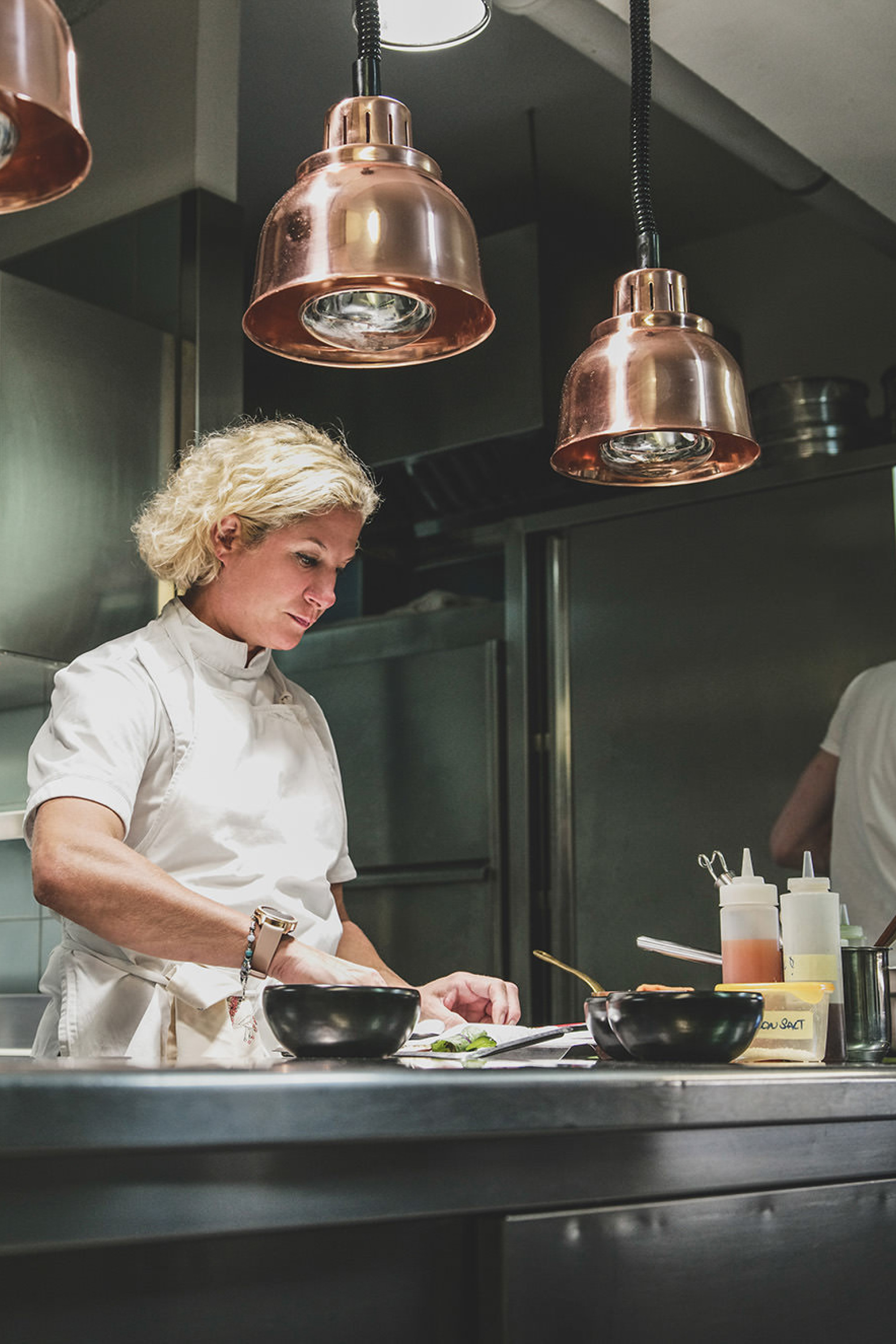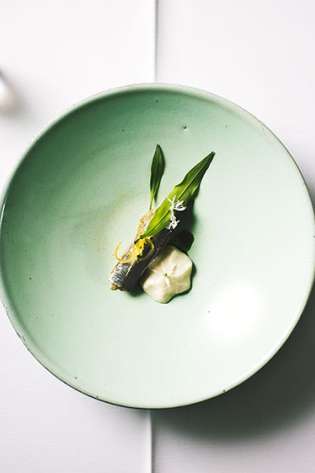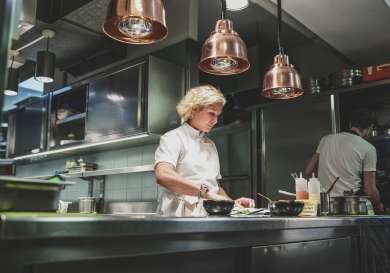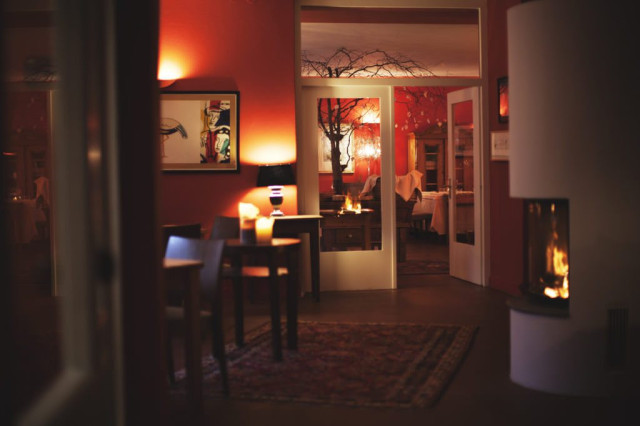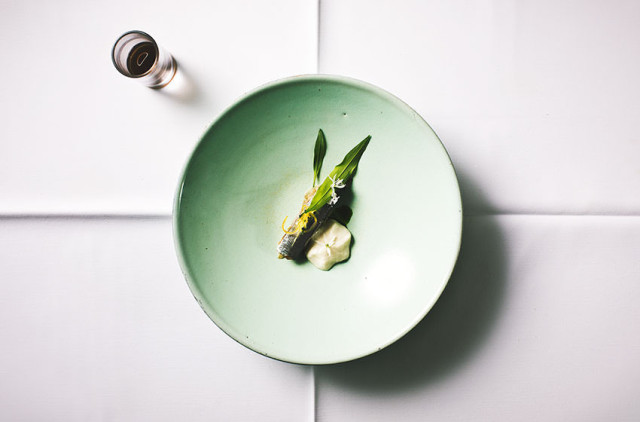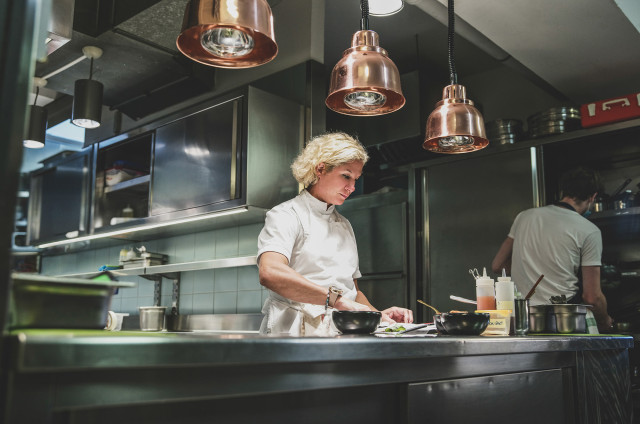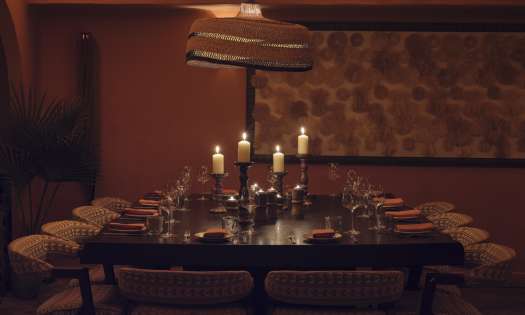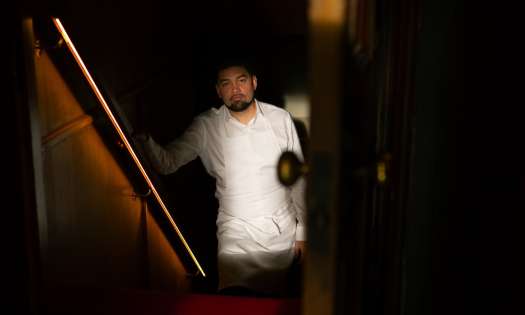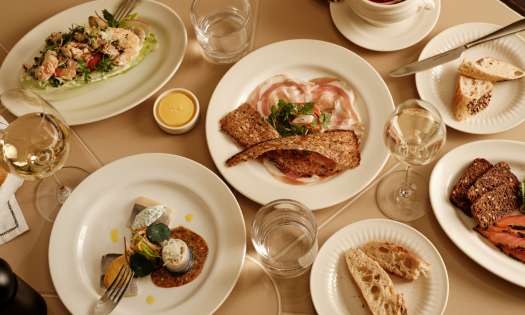“I had no dream to become a chef as a child,” Ana says. It’s interesting statement given that she has won this year’s prestigious ‘World’s Best Female Chef’ title. Self-taught in her trade, Ana tells me that she only started cooking later on in her life because someone needed to take over the kitchen at her husband’s family restaurant, Hiša Franko, based in Kobarid, Slovenia.
Despite her recent accolade, Ana originally set out to follow a very different path in life, having studied International Science and Diplomacy at university; “Hiša Franko is my home and it is the only place I have ever cooked,” Ana tells me. “I met my husband as a student and the love was apparently strong enough to convince me I should stay and not take on a diplomatic career.”
Roš was 25 years old when she began working with her sommelier husband, Valter, at Hiša Franko. Originally, she had been offered a job as a diplomat in Brussels but turned it down to stay with her longtime love. Ana began working on the management side of the business at Hiša Franko, only moving to the kitchen when she was 30 (14 years ago). “I was doing everything: bread in the morning, preparation, family lunch, service, orders, shopping. I cannot call it a head chef,” she says.
The assiduous cook will be presented with the honour at The World’s 50 Best Restaurants awards ceremony at the historic Royal Exhibition Building in Melbourne on April 5th this year. “I started from zero but I was very motivated. I am a pretty curious person and always try to reach perfection,” she says
Due to Slovenia’s proximity to neighbouring countries Italy, Hungary, Austria and Croatia, Ana Roš grew up with a taste influenced by their rich cultural cuisines. Being based in the stunning Soča Valley, a mere three kilometres from the Italian border, Roš capitalises on the selection of local producers to source ingredients for Hiša Franko. Taking inspiration from her country’s culinary heritage, Ana adds intriguing twists to traditional Slovenian dishes. The result is an innovative dining experience that feels more like supper in a friend’s home than a restaurant.
“I do not believe in signature dishes,” Ana says. “We change and grow every single day and with that the way we cook - which is our expression - changes.”
When Ana heard the news that she has won the ‘World's Best Female Chef' award, she says that although she felt “extremely happy”, at the same time she felt a great sense of duty. “The idea of people travelling the world just to eat my food and see me is a big responsibility but an honour at the same time,” she tells.
Voted for by almost 1,000 restaurant industry experts and gourmands from all over the world, the award has previously been won by Dominique Crenn (2016), Hélène Darroze (2015), Helena Rizzo (2014), Elena Arzak (2013), Nadia Santini (2012) and Anne-Sophie Pic (2011). Ana tells me that she hopes the award will attract more women into the industry. “The accolade is good for my restaurant, my region, my industry and, in the long term, my gender,” she says.
So what’s next for the chef who is putting Slovenian cuisine on the map? “I have a great curiosity and a hunger to continue to learn. I want to keep feeding my curiosity and increase my knowledge in gastronomy,” Ana shares.
Slovenian cuisine isn't as widely known as others from around the world and currently, the Michelin guide doesn’t cover the European country. “Slovenia is a fantastic melting pot of different cultures and traditions,” Ana tells me. “These are normally the places of the best food in the world. Our time is coming soon.”
With her recognition growing by the day, how does Ana intend to popularise and change the perception of her native cuisine? “I will continue to work hard and speak about other young interesting chefs, and encourage the national institutions to be more interested,” she says. Watch this space.
